I’ve met a lot of interesting people through Iamgreek.nl. One of those people is Leo Peppas, a Greek raised in London that has lived most of his life travelling and teaching Yoga.
Since the first day I met him and had that first cup of coffee, I realised that Leo is not your ordinary person but neither your ordinary teacher. His life experiences, the stories he shared with me but also the yoga lesson in which he invited me and Iamgreek.nl’s friends, were quite special and unique and made me ask him for his story.
Read on and enjoy Leo’s story, a man that lived and lives as an expat, taking in only the positives and filling his head with knowledge and experiences.
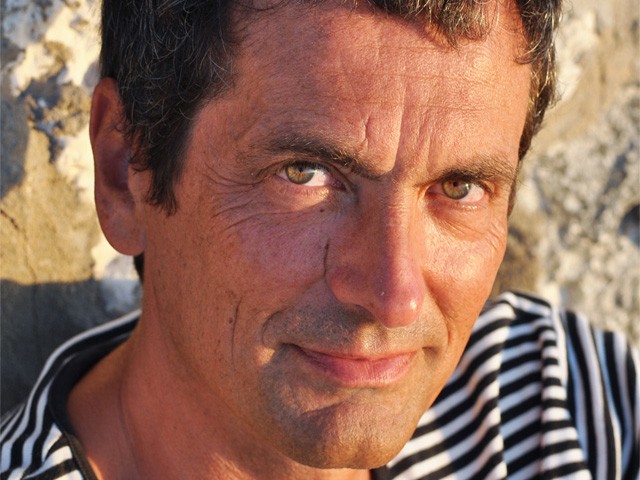
You are Greek on your father’s side and despite of you not growing up in Greece you were raised Greek. How was that experience and how different was it compared with the rest of your friends growing up.
I was born at the end of the fifties in England, looking back at the black and white photos of then it seems a world away. The British cultural norms at the time seemed very foreign to me; how it was more important to be polite than honest, never really say directly what you mean or feel, control your emotions so they are not visible to others, play by the rules. Confronted with these bizarre behaviours I certainly felt closer to my father’s way. His expressivity, openness, honesty and aliveness seemed much more appealing, and felt like something I could relate to, there seemed to be more references for life available. Its just that my father was born in what used to be the village of Elefesina in 1899, in another century and another world, when cars had not yet arrived and they only had horses. It meant that what he taught me about being Greek was on more on an emotional-physical level. His norms seemed just as strange to me, like if I would wear red socks he would turn red and explode accusing me of being gay.
My British side didn’t understand what gay was anyway, at least not outspokenly, although one or two of my teachers provided some clues. My teachers were certainly the most bizarre collection of dysfunctional characters you could imagine. There was something I respected in my father, his honesty, which I didn’t find in my teachers, in fact they taught me everything about why not to show respect. They demanded it but didn’t earn it, unfortunately I made sure they knew it. Many years later when I read the story of Plato’s cave, I wish I had heard it earlier, it would have been a reference that would have helped me understand where I was venturing during that time, outside of the cave and back again. Its a process that we actually use in yoga, shifting perspective to catch the blind spots and more.
Apart from spending a lot of time in nature, I didn’t really find anything else to really connect with. All my pears seemed to share my dissatisfaction with the world we were presented, but when I stood up in class to protest they stayed in their seats, I was definitely on a one man crusade.
The unresolved struggle of growing up between cultures eventually taught me many useful things; to be comfortable with situations that are unresolved or uncomfortable, to better differentiate when cultural norms are outdated or limiting and to look for a broader, more encompassing context. Again when I read Plato later, it also helped me make sense out of all those situations I couldn’t resolve. When he was presented with a narrow viewpoint, he would expand the context to help the person understand that their thinking made no sense.
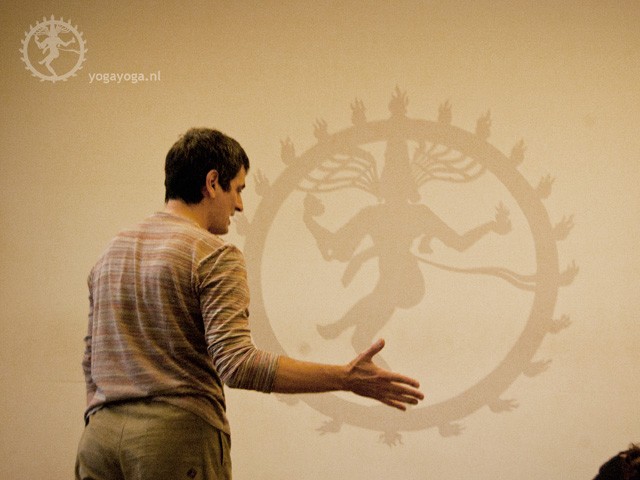
When and why did you decide to get involved with Yoga?
At the end of my twenty’s I was going through a life crisis. I wanted to go through it and understand what there was to learn, but didn’t know how. I had done Kung Fu and Tai Chi when I was younger and knew that the physical support would help me deal with part of it. I needed containment and presence of mind as well so I turned to yoga, in fact I did a lot of yoga!
When we step on a yoga mat, we take everything with us, all our personal and collective history. So it’s actually an opportunity to update and address all the limiting strategies to life that we amassed. It was a remarkable realisation for me, over a number of years, that it’s possible to address all of our history through yoga. It also enabled me to make more sense out of all the things I struggled with growing up.
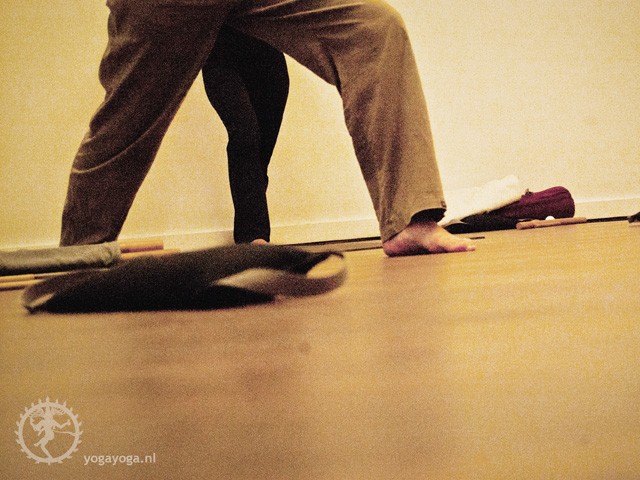
You’ve travelled and worked abroad in other countries like Germany for instance. How different was your experience there compared with the Netherlands?
I’ve taught extensively in England, Germany and the Netherlands and my teaching has always evolved to address the people who came into my studio. There are always commonalities, themes that go deeper and that we all share, but there are also historical and cultural differences that are very marked. What’s actually more interesting are the commonalities, we’re trapped in Europe by becoming so identified with the differences. It can be helpful to understand the differences, especially their history, but they can be misleading. We can be deflected in our sight of what’s more important. I’ve learnt to look at things more poetically, the literality can often mask the underlying truths. The way we judge things mostly tells us about how we are looking.
As a teacher on a daily basis I’m presented with people’s stories; pain, stiffness, burn-out, ambition, hopes etc etc. yet the challenge is to see the whole person, not only the story they present. I don’t judge people solely on their story, but mostly look whether they have the support they need to deal with it. Yoga is great for putting the story into perspective and giving back the reference of the present moment. We are so often caught floundering between the past and the future and yoga provides us with a way to deal with this experience, especially with the help of body.
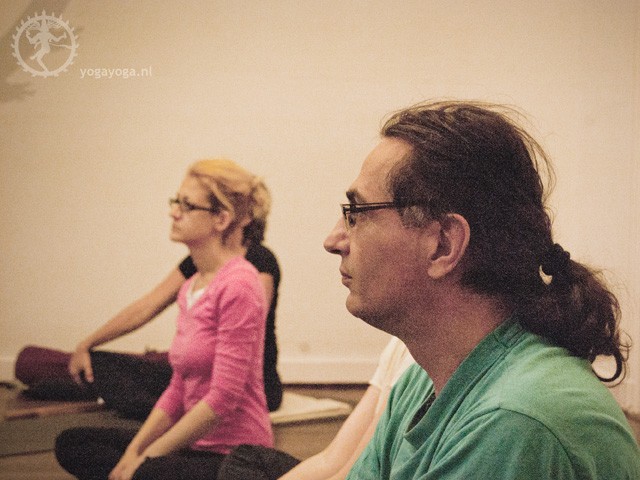
Searching for a substitute for what seems to be the elusive present, we can fall into a major societal trap, one that makes us into perfect consumers. We become increasingly susceptible to being conditioned to over-focus; through education, mobile technology, computers, tv, marketing tools and especially through fear. We are more easily led when we narrow our horizons, we feel more separated from all the own sources of our inner wisdom and knowing. Paradoxically, over time, when this narrow focus becomes a habit it also becomes a trap because it feels safe. Every culture also has its own blind spots and the more narrow our focus the larger the blind spot. Changing perspective on a regular basis, another of yoga’s fortés, is essential to deal with this.
In yoga we spend much of the time re-connecting to difference sources of our inner intelligence and recognising when we fall back into old patterns, the body provides many clues for this process. When the intelligence of the head, the belly and the heart all come together, it’s very hard for someone to pull the wool over your eyes. There are many aspect of human nature that don’t seem to make sense until you see then in the context of a process, even pain, depression and crisis. Yoga is all about this process. It’s also about celebrating life, in fact it’s this very aspect that gives us the support to deal with the story. When we can differentiate what actually nourishes us and what actually satisfies us from what we are told should, it can also save us a lot of money. By nature consumers are never satisfied. By listening to our bodies we can learn to listen to what we already know, and discover that we are already sophisticated. Yet society tells us to work on our image, to become more sophisticated in our capacity to control, to use our mind to increasingly rely on knowledge.
Yoga reminds us that this is all very questionable and instead that we can return to draw upon billions of years of evolution that provide us with a rich array of support. When your embodiment changes, its changes the way you see the world. The mind becomes free for what its actually good for and we find access to inspiration, creativity, spontaneity and even fun.
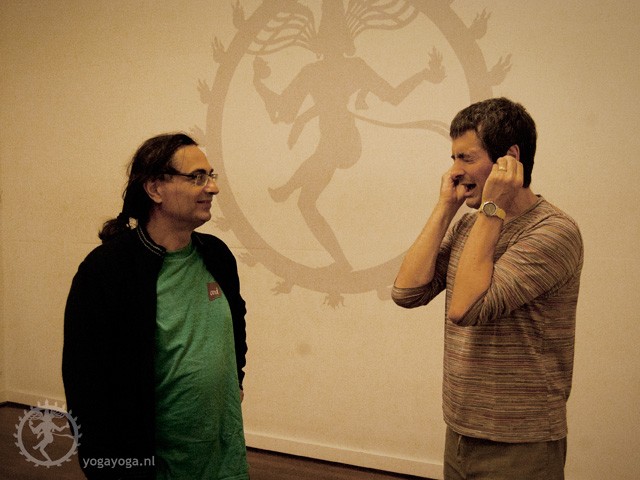
How come you chose Amsterdam as your final destination?
I was studying here twice a year as a movement therapist and met my partner Sandra, a fellow yoga teacher and dancer living in Amsterdam. She’s German and I felt ready for the challenge. We had enough of a similar vision, connecting through our commonalities and not getting caught in the differences, most everything fell very organically into place. Living in London at the time, Amsterdam also seemed a much healthier option.
When did you decide to begin the Yoga school?
The latest one, in Amsterdam, in 2002.
Who can join and in what language are the lessons being taught?
We have a very broad range of people in class, from Scientists and Doctors to creative people, young (from 16) and old, busy people and burnt out people, unemployed and ambitious directors. You may not find a hip clique, but you will be very welcome in the company of a broad mix of people. My classes are in English, but we also have classes in Dutch or bi-lingual depending on who’s there. We’ve even had people learning their Dutch and Yoga in the bi-lingual classes!
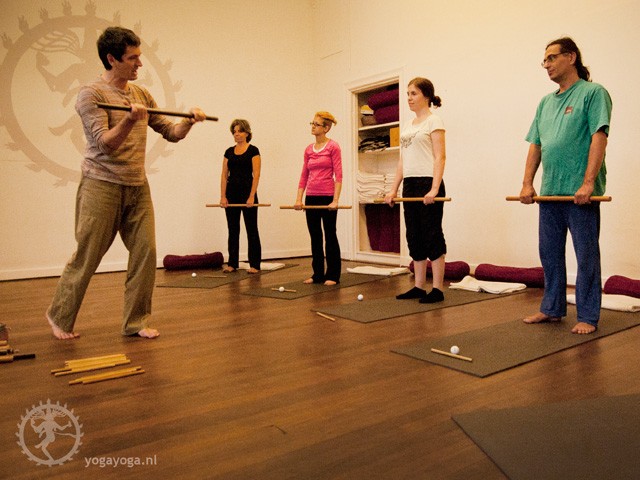
Is the life of a Yoga teacher easy?
I stopped thinking in terms of easy and difficult a long time ago, its not especially helpful. As a yoga teacher my work has to constantly evolve, and at the same time we teach a curriculum with many levels, its a huge body of work. The life of a yoga teacher can certainly be challenging, and because of this, also very rewarding. Nowadays the challenge is also more on the business side. Yoga has come into the real world and yoga teachers, at least those that have a studio, have to be very up-to-date with many business skills. These days I feel I’m often working for the new breed of middle men that’s been created, like Mark Zuckerberg and Google, not something I’m entirely comfortable with.
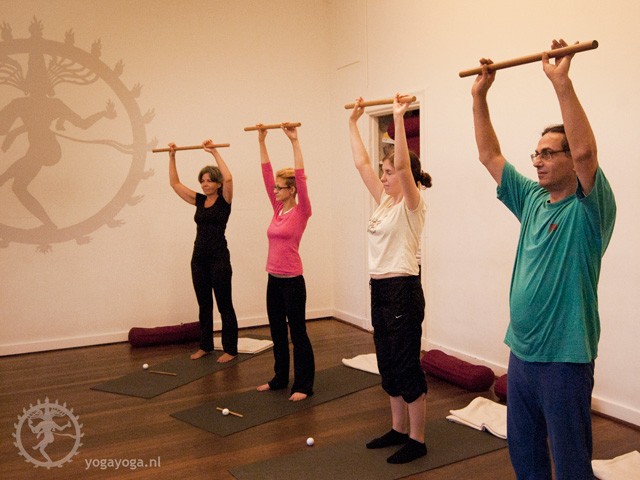
The past few years there has been a fashionable trend about learning Yoga. Why would someone do Yoga instead of some other athletic activity and is it a trend or a way of living?
There are many, many forms of yoga. Much of what’s on offer is Yoga that has been fully assimilated by our culture. That means that rather than being primarily about a spiritual process, or simply a process of self discovery, more than anything else the yoga is now based on our cultural ideals. It has become the place to work on becoming the perfect prince or princess. You can certainly polish your image, become fit, get a six-pack, relax, de-stress, become stronger and more flexible, maybe even learn to breathe easier or meditate.
If its only this that we get from yoga we have to ask; how sustainable the effects are, how much depth is there in their value, how does the experience really touch us? If we are side-tracked by cultural ideals instead of accessing the deeper meaning, true nourishing and support for life, we risk missing the big part of what yoga can offer. There is often no recognisable difference between this kind of yoga and any other class in a gym. Its lost its right to be called yoga, its been watered down and sold out to the consumer. Unless we demand something more. The fast food manufacturers know that they provide an unhealthy option, but as long as the consumer demands it, nothing will change. Yoga can help us to transform and update our culture to one that is relevant to what is happening now, instead of celebrating an out of date ideal. The ideal we strive after in our consumer driven yoga, of becoming more sophisticated and wilful in our control, is usually what happens when we are losing a relationship.
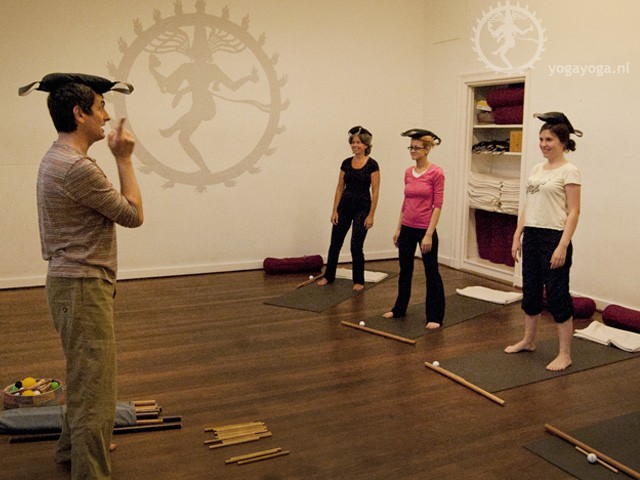
Remarkably yoga can offer us the best of both worlds. It is in some places undergoing a wonderful renaissance. Having come to the west we’ve had the opportunity to strip away the accumulated dead wood of tradition, to seek out and return to the original spirit of yoga. Through a yoga practice you can build the physical support needed to meet the challenges of life and take the adventure, but this support is built through our relationship to the world and not exclusively through the body – therein lies the difference. When the yoga you do, everything you experience on the mat, relates to what you experience in everyday life, it has meaning, it has value, its nourishing and more sustainable. When the body is treated as an object to control or master, we risk missing what the ancient yogis warned us of, that the secret to life is not hidden under a mountain or in anything else, but within us. When we assimilate yoga into our culture and don’t ask any questions, it can become religious in its worst sense, and we apply it like our modern western medicine, like there is something wrong with the body and we need to fix it, there’s something very questionable about this approach.
Someone telling you that you are fundamentally flawed to gain control over you is an old trick that religion has used for centuries and that the drug and insurance companies still benefit from.
In the future I think that this time will be seen as the ‘second dark age’. We now have this opportunity for a ‘second renaissance’. Let’s learn from the last one, when narcissism got the better of us, its very expensive, we may even have to pay with the planet. History tells us that we don’t have to repeat the same mistakes, that we can learn from all that suffering, we just need the support to create something new.
Yoga does not hold a monopoly on the process, many people discover themselves and the support they need by engaging in life through science, art, sport etc etc but its the speciality of yoga to explicitly include the process, to be guided step by step, in fact to ultimately learn how to guide yourself. There’s certainly no short cuts, only longer ways around.
This is a very black and white picture of two poles that exist in yoga, and of course there is a whole continuum that exists between. But how do you choose and how do you know the difference. I suggest you seek out the yoga teachers with the courage, striving to do such work, they are not the majority but they are out there. Just ask yourself what it could be worth, at its best, and then don’t be satisfied with anything less.
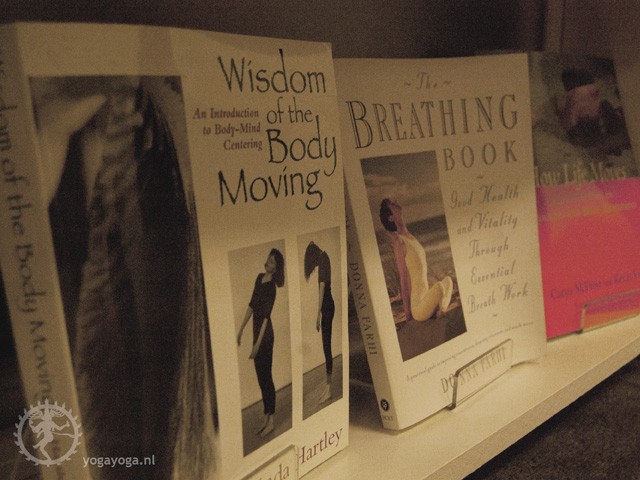
What is better for someone with limited time. Personal training or group? How can someone find out if he likes Yoga?
Both are great options. Personal yoga sessions can be more specifically focused on your process and timing. Group sessions can also provide the support of sharing in the experience. Most of the vital experiences in yoga are shared, remember its the commonalities that are often most relevant. It doesn’t matter how evolved you are, it usually all comes back to basics, time and time again, themes like trust and acceptance, and we find a way to deal with this process. From the beginners classes to the most advanced, like in life we often return to basic questions, its usually a sign we’re on the right track.
In terms of time, you need to find a kind of yoga that’s not only physical, which seems to be hitting the spot but never really satisfies a deeper yearning that we all have. As I said before, the teacher needs to understand how every practice on the mat relates to life, then it will stand more chance to sustain and accumulate. If they are teaching you techniques, the understanding about the body and life is usually missing, its a substitute. If they are telling you how to do the posture, the understanding is missing. If the process isn’t there the benefits will be limited.
Search for a class that speaks to you as directly as possible, whether you like it or not, where the teacher does not waste your time or his with anything else.
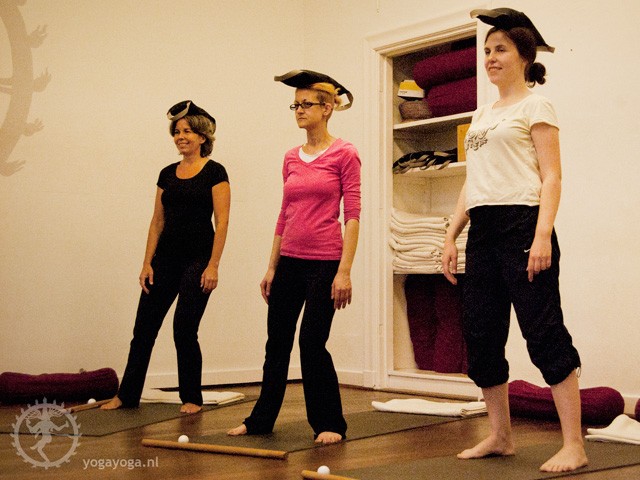
Did you have Greek students? How was their fitness compared with the Dutch?
We always have a few long time regular Greeks, one or two Greek ladies coming to Pregnancy yoga. I’d love to see more Greeks in class. In fact I recently gave a yoga class for Greeks only and now I’m waiting for them to show up – the invitation is there. I’ve been teaching to Northern Europeans for 25 years and its been incredibly rewarding, and when a Greek show up in class I feel just that little bit more at home.
Actually physically they all have their idiosyncrasies, very specific things that relate to each culture, things passed down from generation to generation. There are differences in so many ways but fitness is probably the least remarkable. Greeks seem to flow in and out of class like its second nature, when they finally manage it that is – maybe it comes too easy and they sometimes forget that its actually good to discover again what really nourishes you best. The English say ‘you can lead a horse to water but you can’t make it drink’. The Greeks are good at drinking, they’ve just got to show up in class!
The Dutch show up, they love to say ‘ik sit op yoga’ you just have make it attractive enough to get them to drink as well. The Germans first need a talk about what yoga will do for them, what its good for, what its all about etc etc etc (I actually had to do this when I taught in Germany, when they first asked me my jaw just dropped). The English are easy, yes I know that’s a cliché to the Greeks, but although they do what they’re told in class they do love to moan!
If I was to make the perfect body I might take the generous heart of a Greek, the sensitive nose of the French, the beautiful mouth of an Italian, the long arms of the Dutch, the keen eyes of the German, the big chest of the Spanish, the strong legs of the Scandinavians, the Pelvis of the Portuguese for that swing, the ears of the Irish that value the poetic and maybe the British backside, always good for sitting on! After all its the richness we share that’s important and not the paucity of the difference.
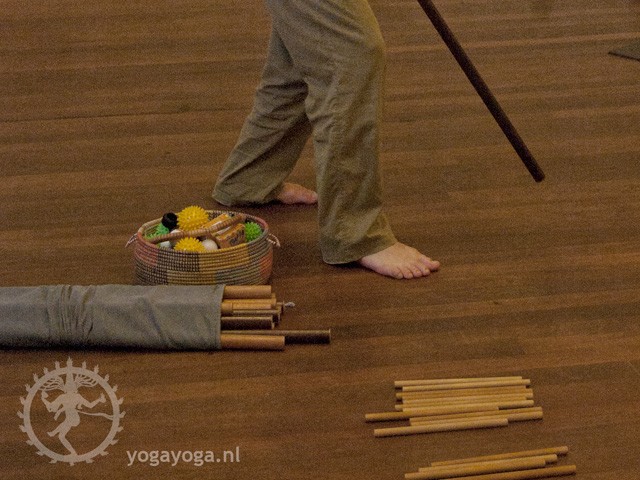
What are your plans for the future? Is there an achievement you are still working on?
Ah the future.... I’ll tell you when I get the time. Actually what I’d like to do is offer my work to a wider public. We’re spoilt in Amsterdam with yoga on every corner, its also the stage that yoga market is at in the Netherlands, its currently all about choices, convenience and what’s hot, sometimes literally. There’s the same choice in London but the market had developed further, people will travel across town for a class, understanding that the quality is more important than the convenience.
I’m always working on developing, evolving, its the eternal challenge of teaching yoga. I’m only satisfied for an instant, it seems eternal for a moment, but I let it go just to see if it returns again. I always strive to do more with less, to focus more on the more vital aspects, drop any techniques or anything that’s not relevant. So it’s a constant process of stripping away, refining and growing. And always dealing with being a fallible human being, it keep me on my toes and keeps me real.
If you want to know more about Leo Pappas & Yoga Yoga, you can visit the official website www.yogayoga.nl of the school or the group on facebook.













